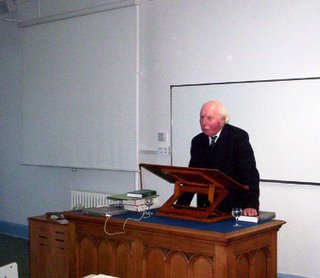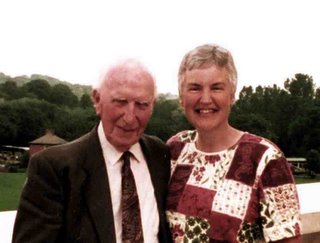
is more often than not rather furry. We live in seminary housing in the middle of Chelsea with our two dogs Diamond and Reuben, and our two cats Fishy and Mouflon. Reuben and Fishy get on well (as you see) but alas, the same cannot be said of Mouflon and Fish. Mouflon seems to think of himself as something other than a cat (a dog perhaps?) and prefers to relate to people.
Living in a household wherein only two occupants communicate by words makes one pay attention to NVC: canine gestures, movements, expressions; feline presence and sounds (Fishy is part siamese) all play a part of daily routine. Laura Hillenbrand describes Tom Smith, Seabiscuit's trainer: "Perhaps Smith spoke so infrequently because he was listening so hard. Horses speak with the smallest of motions; Smith saw and heard everything." When the grooms walked horses round in circles to cool them down, they'd see him "squatting on the floor turning the horses over in his mind." "He lived by a single maxim: Learn your horse. Each one is an individual, and once you penetrate his mind and heart, you can often work wonders with an otherwise intractable beast."
We got Reuben as an eight week old puppy. He was off leash on 10th Avenue following an older dog and a young man. Julian said to the young man, "If you love your dog, you'll keep him on a leash as 10th Avenue is very busy." When the young man announced that he wanted not to keep but to sell him, Julian said, "Done!" Reuben arrived in our house after a quick checkup at the local vet, and the first thing he did was rush to hide behind Angus, our old shepherd, who was lying down. Angus, being rather old and mellow, offered Reuben the puppy a safe warm vantage point from which to take in the lay of our apartment. Negotiating Diamond, our female shepherd (who is rather tempramental due to her unstable upbringing before we got her) and with whom he grew up as a sister/mother substitute, is one of Reuben's skills.



